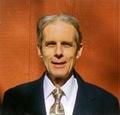Millions suffer from caffeine, and stay addicted because they fear withdrawal symptoms, but the sooner they make the break, the better their health, says Richard Ruhling, MD who taught Health Science at Loma Linda University.
“Caffeine is the most common but unrecognized cause of health problems in America, and a major contributor to the high cost of medical care. When something is good for the body like exercise, it aids the body many ways, but when something is bad for the body, like caffeine, it causes many problems as can be seen,” says Ruhling who offers the following list:
1. Headaches: Tension, migraine and cluster types. Most physicians do not recognize caffeine to be the cause of headaches since many drug companies include caffeine as one of the ingredients to relieve the pain. But the headache results from withdrawal or dropping caffeine levels, just as smokers get symptoms when they try to quit. So coffee is prescribed for headaches the day after surgery; Anacin, Excedrin, APC, BC or Goody Powders, "cure" the headache, but maintain the addiction. The same is true of Rx drugs like Cafergot or Fiorinal prescribed for migraine.
2. Stomach troubles: Heartburn, gastritis, ulcers and hiatal hernia. Caffeine is a powerful stimulant of gastric acid. Caffeine supports the antacid industry of Tums, Rolaids, Mylanta, and expensive Rx drugs like Tagamet, Zantac, Pepcid, and Axid. Guidelines for these drugs indicate short-term Rx, like 4—6 weeks, but millions who (ab)use beverages, foods and analgesic drugs which irritate the stomach, take these drugs continuously, thus adding to the high cost of medical care.
3. Sleep Disorders and Insomnia. Sleeping pills are big business, thanks to caffeine’s effects of slower to sleep, shallow sleep and easy wakefulness. Many who don’t think they have a problem, but find they sleep much better without it!
4. Nervous disorders: Millions of Americans are addicted to tranquilizers, and their need for nerve pills began with their addiction to caffeine which stimulates the nerves. Then they want something to calm them, a sad cycle that’s easier to prevent than cure.
Many caffeine users have anxiety—the most common cause for tranquilizers in America. Every day countless patients in doctors’ offices are given Valium, Xanax, Ativan and other costly Rx’ s to cope with nervous problems, with scarcely a thought that patients develop this need by using caffeine.Hyperventilation and panic attacks are seen daily in any emergency room. The cause is usually unknown, but questioning uncovers caffeine as a factor in many cases.
5. Cardiovascular problems: Caffeine increases heart rate and raises blood pressure to a mild degree. It causes premature ventricular contractions and lowers the threshold for ventricular fibrillation, a fatal arrhythmia if not defibrillated quickly. These are reasons why it is not allowed in coronary care units.
6. Cancer: The fourth leading cancer cause of death is pancreas and in a major study published in the New England Journal, March 12, 1981. Caffeine had a strong correlation. Bladder cancer in women was found to be 2.5 times more frequent in women who drank 2—3 cups of coffee per day.
7. Birth defects: The most common defect (cleft palate or hare lip) is linked to caffeine. The Food and Drug Administration advises pregnant women to avoid all caffeine because of premature births and low birth weight. Animal studies show increased risk of birth defects.
8. Fibrocystic disease of the breast. Medical textbooks recognize the role of caffeine in causing this most common reason for breast surgery, mammograms, etc. Fibrocystic disease is also a risk factor for breast cancer.
9. Blood Chemistry: Caffeine elevates blood sugar and probably catecholamine levels. These are "excitement" hormones. It also elevates triglycerides for which millions take Rx drugs.
10. Bad Habit Glue is what Dr. Pavlov, the famous Russian scientist called coffee. Most Americans could not wake up and face the day because their lifestyle is so abusive, but caffeine whips their nerves and they charge off to work in a state of stress that lasts all day.
Caffeine is also a major reason why smokers are unable to quit tobacco, because caffeine stimulates the nerves and the person needs a smoke to calm them. The 5-Day Plan to Stop Smoking has shown it is easier to quit both tobacco and caffeine, than to quit only smoking.
Quit Tips:
1. Pick a long weekend when you are off work Friday or Monday.
2. Whenever there is a craving for a smoke or cup of coffee, take 5 slow deep breaths (think of them as lung exercises all the way in and out)
3. Get a drink of water or squeeze a lemon in it)
4. Go for a short walk to the mailbox, garden or around the block.
5. Call a friend, a buddy who knows you are quitting. Pray for him as he prays for you--God meets us more than halfway as the story of the prodigal son shows, Luke 15:20.
6. Take Tylenol to take the edge off a severe headache; it lessens and leaves you in a day or so in most cases. Taking charcoal tablets or capsules can hasten the withdrawal and is an excellent home remedy for times when you are toxic, as it adsorbs body toxins.
Dr. Richard Ruhling offers more information on health at http://RichardRuhling.com and on other topics at http://News4Living.wordpress.com with ebook having mostly 5-star reviews on Amazon.

Post new comment
Please Register or Login to post new comment.